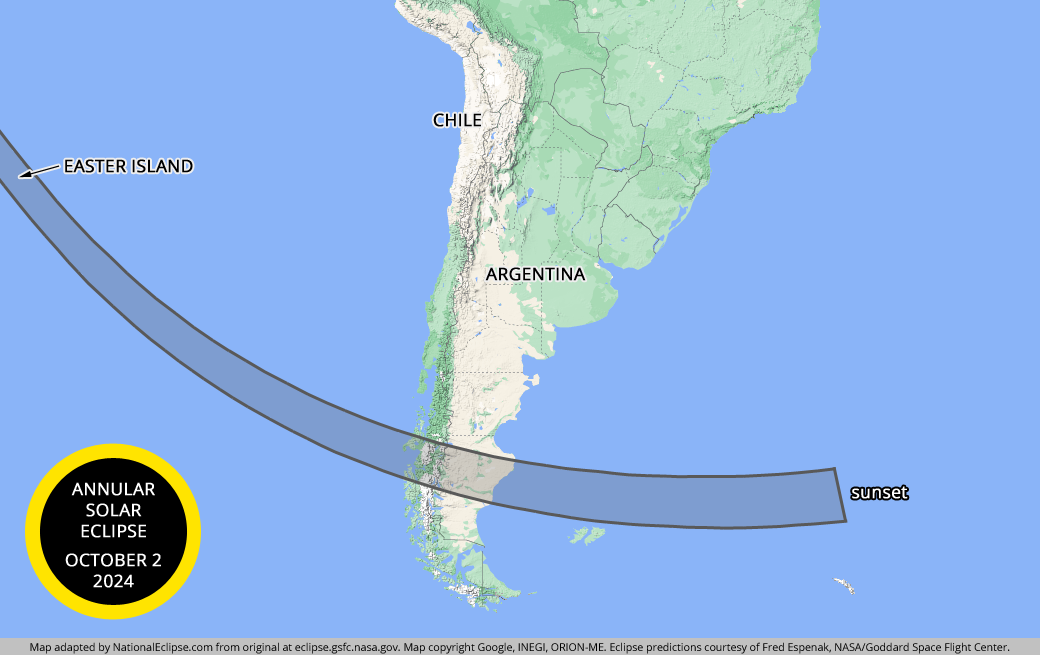[ Skywatchers ] [ Main Menu ]
48476
From: Eve, [DNS_Address]
Subject: ~Annular solar eclipse Wednesday October 2nd ~
|
Sun, Moon & Mercury in constellation Virgo Earth in constellation Pisces EXCERPT: Annular solar eclipse This event is visible to the naked eye from Ann Arbor. Never attempt to point a pair of binoculars or a telescope at an object close to the Sun WED, 02 OCT 2024 FROM 11:44 EDT (15:44 UTC) TO 17:46 EDT (21:46 UTC) The Moon will pass in front of the Sun, creating an annular solar eclipse visible from southern Chile and southern Argentina between 11:44 and 17:46 EDT. From the Contiguous United States no eclipse will be visible (change location ). |
Responses:
[48477]
48477

From: Eve, [DNS_Address]
Subject: Re: ~Annular solar eclipse Wednesday October 2nd ~
URL: https://en.wikipedia.org/wiki/Solar_eclipse_of_October_2,_2024
|
Solar Saros 144 (17 of 70) EXCERPT: An annular solar eclipse will occur at the Moon’s descending node of orbit on Wednesday, October 2, 2024,[1] with a magnitude of 0.9326. A solar eclipse occurs when the Moon passes between Earth and the Sun, thereby totally or partly obscuring the image of the Sun for a viewer on Earth. An annular solar eclipse occurs when the Moon's apparent diameter is smaller than the Sun's, blocking most of the Sun's light and causing the Sun to look like an annulus (ring). An annular eclipse appears as a partial eclipse over a region of the Earth thousands of kilometres wide. Occurring about 2 hours before apogee (on October 2, 2024, at 20:40 UTC), the Moon's apparent diameter will be smaller.[2] Other than Easter Island and a small portion near the southern tips of Argentina and Chile and the north of the Falkland Islands,[3] the path of the eclipse's antumbra will be entirely over the Pacific Ocean. The penumbra will be visible from Hawaii, eastern Oceania, southern and central South America, the southwesternmost parts of Mexico (more specifically, Baja California del Sur and Jalisco), and portions of Antarctica. Approximately 175,000 people live in the path of annularity.[4][5] |
Responses:
None
[ Skywatchers ] [ Main Menu ]